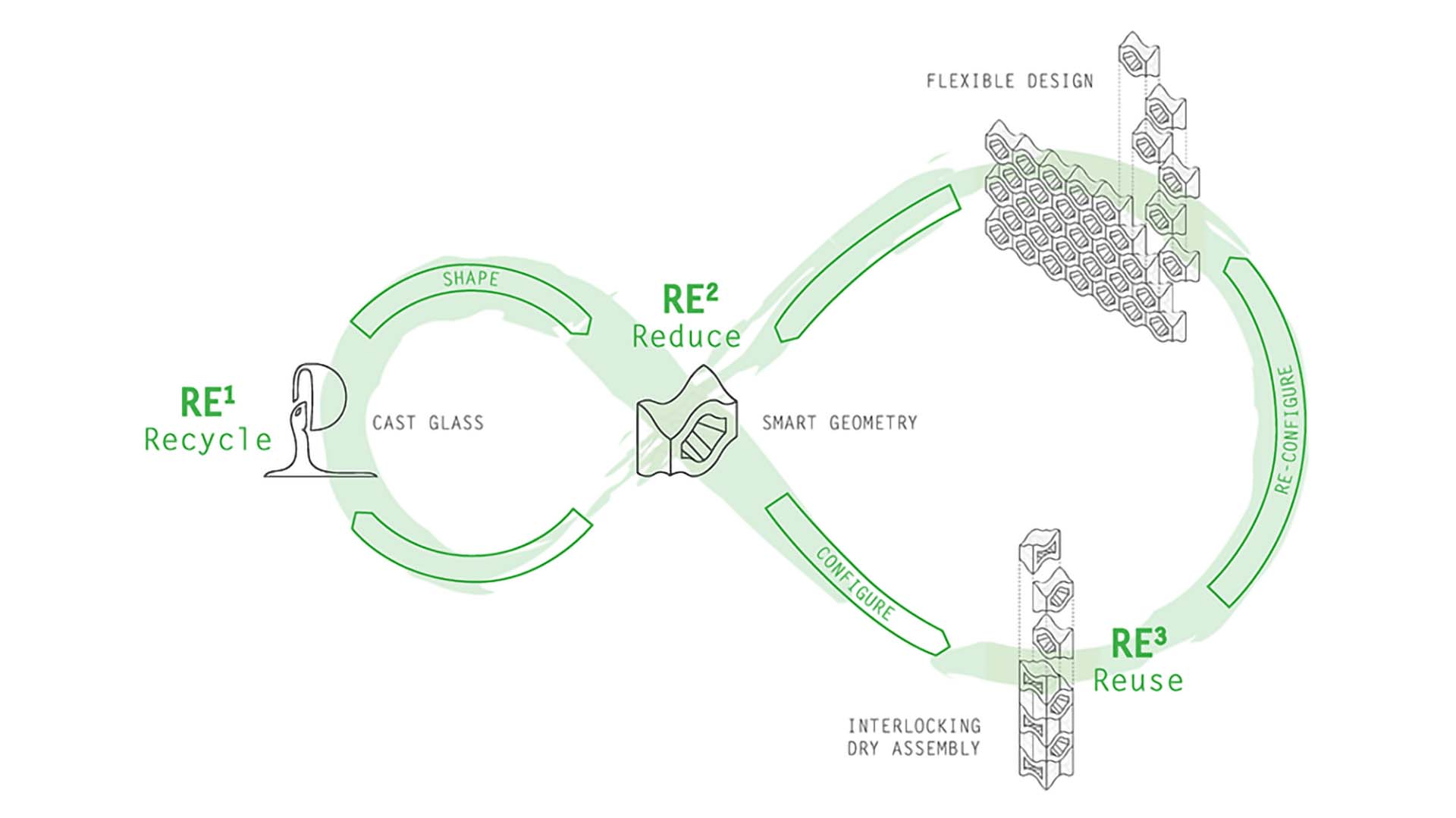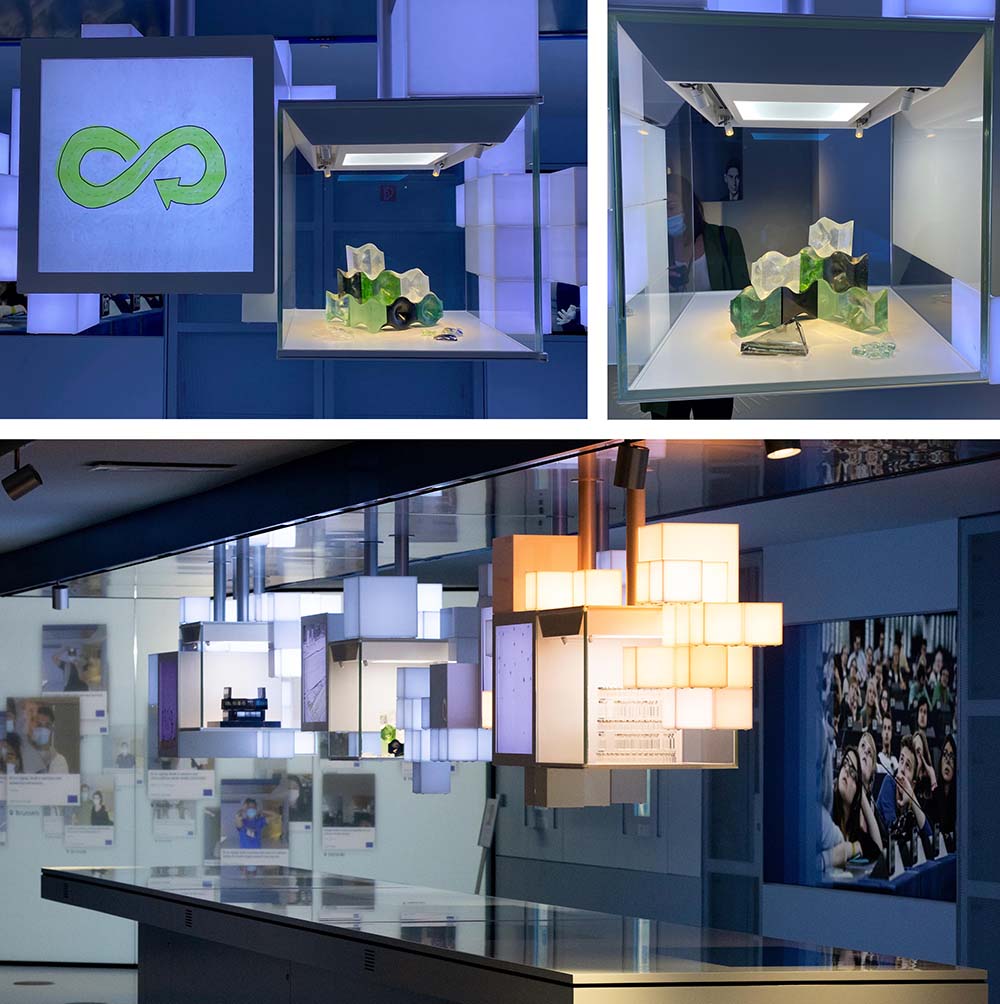“Re3 Glass” research represents topic of “Climate Change” at EU Parlamentarium
Despite the perception that glass is 100% recyclable, the vast majority of everyday glass products are not reused or recycled. The "Re3 Glass" project shows that this can certainly be done differently. With specially cast glass components made from glass waste, the "Re3 Glass" project has now been selected to represent the theme of "climate change" in the Parlamentarium - the European Parliament's Visitors' Centre in Brussels.
Reducing CO2 emissions and glass waste
Reducing our substantial CO2 emissions and waste quantities, and conserving our material resources is an urge our society cannot longer ignore. Glass is an excellent candidate in the transition efforts to a low-carbon environment: it can be indefinitely recycled in a closed-loop without loss of properties. Yet, despite the impression that glass is 100% recyclable, the vast majority of everyday glass products (e.g. window glass, mobile and TV screens, ovenware, lightbulbs, laboratory-ware) are either down-cycled to low-value applications or sent to landfill, as current thin glass production processes are unable to accommodate the contamination and compositional variations of waste glass streams other than container glass. Essentially, glass waste remains a significant and unresolved problem.
Architectural components
Re3 Glass aims to tackle the problem of glass waste by introducing circular, reusable and recyclable cast glass architectural components, made of currently difficult-to-recycle glass, such as construction & demolition glass, glass for electronics, automotive glass, etc. The inherent flexibility of casting allows for the recycling as-received of contaminated glass and of glass of mixed compositions, without involving costly and energy-intensive separation methods. Moreover, the increased cross-section of cast components allows for higher contamination rates than those acceptable by the thin-glass industry. Introducing this new material to the building sector, Re3 Glass tackles further circularity by developing a novel, reversible building system comprising dry‐assembled, interlocking cast components out of waste glass.
Experiments at TU Delft Glasslab with different geometries, glass compositions and cooling techniques, have resulted in a wide range of clear, coloured, translucent, opaque, even marbled glass. The new glass materials and component geometries are mechanically validated in the lab, while the most critical defects resulting from the recycling process are identified under the microscope. The research proves that recyclable cast glass components can form circular, strong and aesthetically intriguing glass structures.
EU Parlamentarium
The Parlamentarium media station gives an overview over the European Union’s priorities and future directions by introducing visitors to 5 key topics on the Parliament’s political agenda: climate change, digital transition, health, economy & equality and Europe in the world. The project is showcased amongst leading innovations such as the Covid-19 vaccine (Health topic) and a miniature reproduction of a quantum computer (Digital transition topic).
More information
This research is a collaboration of the Faculty of Architecture and the Built Environment department AE+T with department 3MD of the Faculty of Civil Engineering and Geosciences. It is a research project of Faidra Oikonomopoulou and Telesilla Bristogianni.
See the Re3 Glass project page for more information.
The project was awarded a kick-off funding by 4TU.Bouw Lighthouse for the year 2017.


